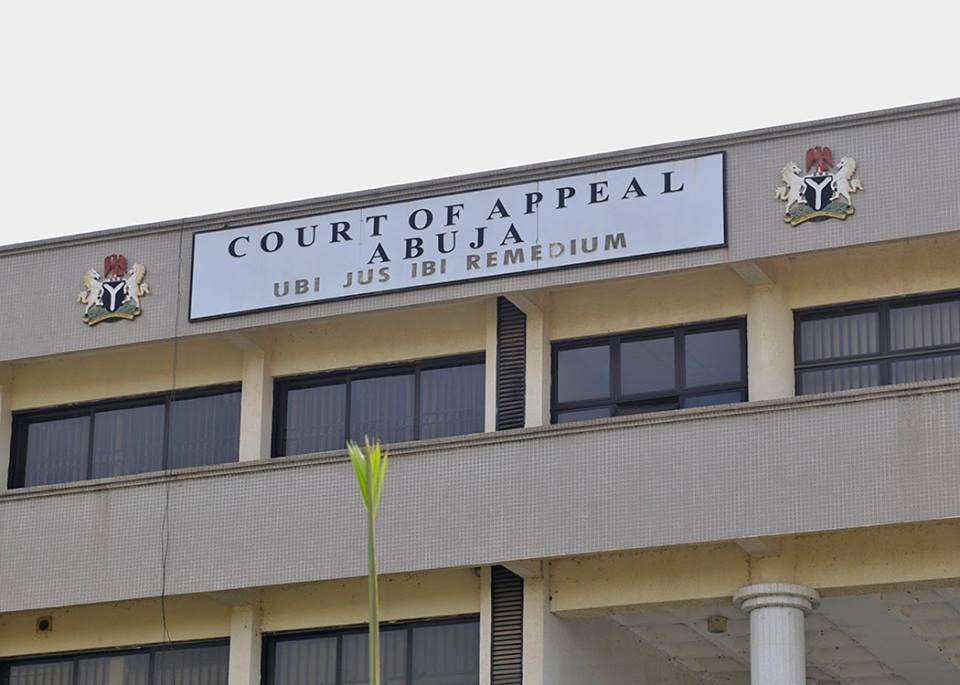How PDP Convinced Appeal Court To Quash Judgment Ordering Malami To Delete Section 84 (12) Of Electoral Act
The Court of Appeal sitting in Abuja on Wednesday granted an appeal filed by the People’s Democratic party against a Federal High Court judgement in Umuahia which ordered the deletion of Section 84 (12) of Electoral Act 2022.
Section 84 (12) of the Electoral Act 2022 bars political appointees from voting or being voted.
Advertisement
The PDP counsel, Emmanuel Ukala SAN asked the appellate court to determine whether the trial court was justified when it assumed jurisdiction to hear and determine the case as well as direct the Attorney-General of the Federation to delete the section.
On 8 March 2022, Chief Nduka Edede had commenced a court action before the Federal High Court division in Umuahia, contending that he was not satisfied with provisions of Section 84 (12) of the Electoral Act which bars political appointees from voting or being voted for.
He argued that it was unconstitutional, adding that the provision will disenfranchise and oust the constitutional right or eligibility of any political appointee or public office holder to vote or be voted for at a convention of a political party.
The Attorney General of the Federation was the sole defendant in the matter in Umuahia.
Advertisement
The Court division in Umuahia had agreed with him and ordered the AGF to “forthwith delete the provisions of Section 84 12 from the Electoral Act, 2022 with immediate effect.”
The lower court also agreed that the section is inconsistent with the provisions of Sections 66(1)(f) and 107(1)(f) of the 1999 constitution as amended.
That order was not immediately effected because of pending appeals such as the one filed by the PDP.
In the brief of argument filed by PDP counsel, Emmanuel Ukala SAN, at the appellate court, he stated that the PDP was dissatisfied with the lower court verdict and also wondered why no political party was named as a party to the suit in Umuahia.
The PDP argued that the lower court judgement was erroneous on two grounds. First, that Nduka had no locus standi(had no right to file the suit at the first place) and secondly, that he failed to join proper parties in the case.
Advertisement
“The learned trial court heard the originating summons on 17/3/2022, and upheld same judgement delivered on the 18th of March, 2022 wherein the court granted all the reliefs sought by the first respondent. This was inspite of the fact that the plaintiff/1st respondent woefully failed to disclose any locus standi or reasonable cause of action to warrant the activation of the jurisdiction of the learned trial court to entertain the matter and also failed to join the proper parties necessary for the invocation of the jurisdiction of the court in respect of the subject matter of the suit including the National Assembly that enacted the said Electoral Act, the Independent National Electoral Commission that was responsible for the implementation of the said provisions of the Electoral Act and any of the political parties alleged to be likely to be adversely affected by the said provisions.”
The PDP also contended that the trial court came to a “wrong conclusion” after failing to note the fundamental difference between employment in the civil or public service of the federation which is referred to in Sections 66 (1) and 137(1)g of the 1999 constitution and the status of political appointees referred to in Section 84 (12) of the Electoral Act, 2022.
For Nduka, he argued before the appellate court that in view of Section 182 (1) (g) , Section 84 (12) of the Electoral Act cannot validly bar a political appointee from voting or being voted for.
However, the appellate court agreed with the PDP on matters of jurisdiction and therefore voided the verdict of the Umuahia Federal High Court division.
The appeal was filed by the PDP against Nduka and the AGF.



